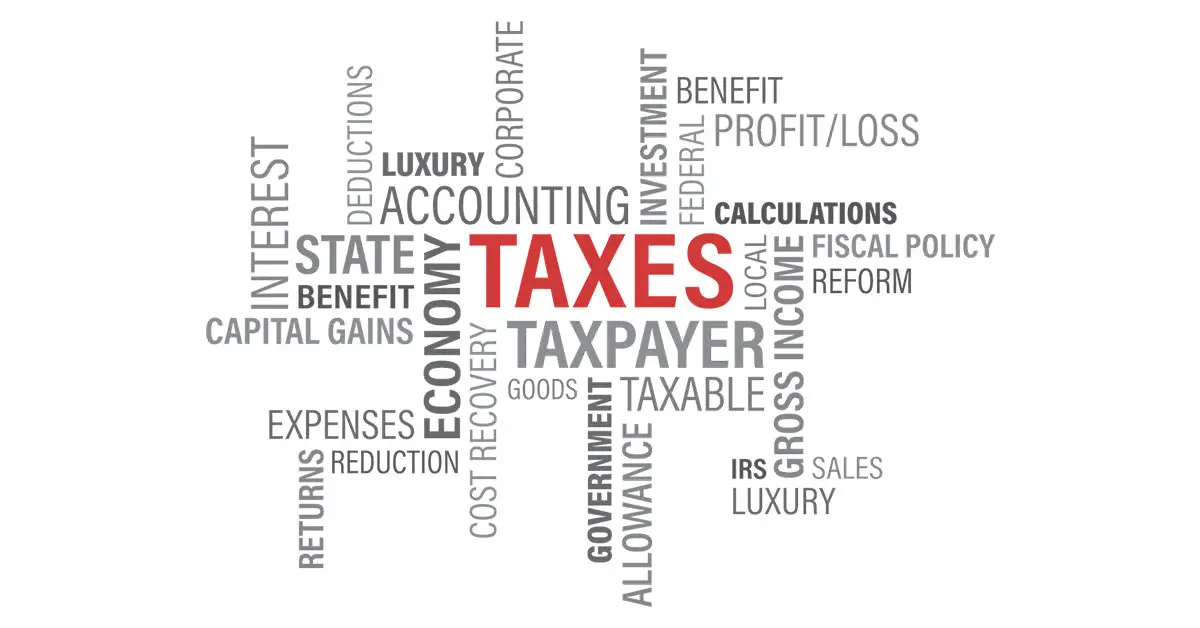With so many benefits to private lending, including attractive ROI, steady and sustainable success, and the potential to diversify, it’s hard to resist getting set up in such a lucrative industry. Anyone with significant capital could become a private lender.
However, the lending landscape is far from simple. Even if your private lending practice is a one-man job, you’ll still be subject to some of the same regulations and compliance frameworks that major financial institutions must abide by. That’s without even mentioning the laws that are unique to private lending.
This is why bringing a Certified Public Accountant (CPA) on board at your private lending practice offers several benefits. In this article, we’ll take a look at how exactly an accountant will assist you, explore those aforementioned advantages, and share some tips for choosing the right CPA for your practice.
How CPAs Can Assist Private Lenders
The financial services that you outsource to your CPA will depend entirely on your practice, your employees’ expertise, and your available resources. However, these are just a few examples of the services that your CPA will be able to perform:
Financial Management - Private lending practices, like any business, need to stay on top of their income and outgoings. A CPA will help manage your financial health, ensuring a sustainable and lucrative operation.
Cost Efficiency - Leading on from the above, if there’s anywhere that your practice is going wrong, an accountant can help you optimize your spending, interest rates, and investment decisions to cut costs and increase income.
Tax Planning and Optimization - Paying your taxes is unavoidable for private lenders, just as it is for everyone else. However, it’s still more than possible to minimize liabilities and ensure you’re paying the right amount. CPAs will know tax strategies within the lending industry, allowing you to take advantage of any available tax incentives.
Due Diligence - As well as behind-the-scenes duties such as financial management and bookkeeping, accountants can also offer assistance when it comes to potential borrowers. By scrutinizing their financial histories, your CPA will ensure borrowers align with your lending policy. While the decision to lend will ultimately lie with you, having a clear understanding of their financials will help you make an informed decision.
Auditing and Assurance - As well as being a regulatory requirement, audits are vital for instilling confidence in your private lending practice’s partners and shareholders. As an independent third party, you can outsource auditing responsibilities to a CPA, who will provide assurances on the accuracy and reliability of financial information.
Reporting and Documentation - Your CPA will be able to draw up objective and transparent financial paperwork, keeping you on the right side of the law, and building a foundation for informed decision-making in the future. They’ll also know when and where to file documents and the compliant way to store reports.
Keep in mind that it’s certainly possible to outsource different duties to specific CPAs depending on their expertise and experience. However, if you find yourself outsourcing several different tasks to separate CPAs, it may be more cost-effective in the long run to bring on an accountant full-time.
The Advantages of Outsourcing to a CPA
Outsourcing to a CPA offers a range of benefits that extend beyond basic financial management, contributing to the overall success and sustainability of your business. Some of these benefits include:
- Access to Specialized Knowledge
Experienced CPAs offer private lenders a high level of specialized knowledge in accounting, finance, and taxation. Even if you have some experience in accounting, outsourcing to a CPA means important financial tasks will be handled by a professional, who has a deep understanding of the complexities within the field. This will increase accuracy, objectivity, and transparency across your practice.
- Credible Industry Advice
Leading on from the above, by outsourcing financial tasks to a CPA, you gain access to expert guidance that can contribute to better decision-making and overall financial management for your practice. In particular, selecting a CPA with experience in your sphere means you’ll receive valuable and strategic financial insights, as well as in-depth advice that’s tailored to the types of loans you offer and the borrowers you work with.
- Improved Efficiency
With your CPA taking care of complex and time-consuming financials, you’ll be able to focus on core activities associated with running a private lending practice day-to-day. This will lead to increased efficiency, with you and your team spending time and directing resources to market, interviewing potential borrowers, maintaining relationships with existing borrowers, and developing strategic business initiatives.
- Regulatory Compliance
The landscape of lending regulations is vast, complex, and constantly evolving. Thankfully, CPAs are well-versed in financial laws and compliance requirements, consistently expanding their knowledge of the field. Outsourcing your financials to a CPA will ensure your private lending practice adheres to industry standards and legal obligations, greatly reducing the risk of costly, and often fatal, regulatory issues.
- Time and Money Savings
Head-hunting and hiring in-house financial professionals is a time-consuming and often expensive endeavor. Outsourcing to a CPA allows you to skip this process, meaning you save both time and money and have a basis for continued lending. Not to mention, CPAs already have the necessary skills to assist you in everything from taxation to compliance, so there’s no need for training or expensive accounting courses.
- Technology Integration
CPAs need to stay updated on the latest financial technologies and software. 92% of accountants feel that technology has a significant impact on their industry. Your practice can benefit from a CPA’s access to and knowledge of these systems, ensuring tasks are completed in a timely fashion, and any documents or data can be accessed easily. Additionally, you can enquire about integrating this technology with your existing system, allowing you to streamline financial processes, improve accuracy, and become an attractive prospect for borrowers in an increasingly technology-driven lending landscape.
- Scalability
Finally, creating a partnership through outsourcing to a CPA means that, as your practice grows thanks to their advice and financial management, so can your collaboration. As you expand into different lending markets or take on more borrowers, they’ll be able to handle an increased workload thanks to their familiarity with your practice. This means your lending practice will remain efficient and effective for years to come, without the need for restructuring or hiring.
How to Choose the Right CPA for Your Private Lending Practice
Your choice of CPA will determine how parts of your lending practice operate, especially if you outsource client-centric tasks like due diligence. As such, it’s important to select the right CPA for you. Here are our tips to do just that…
Define Your Needs - First, clearly outline the specific financial tasks and services you’ll need your chosen CPA to take on. This will help you define the scope of your needs, the expertise your CPA will need to have, and the level of support you may require in the future. You can inform potential CPAs of these needs, ensuring they align with your operation and goals.
Look for Relevant Experience - Just as private lending isn’t as easy as handing out mortgages and collecting the payments, accounting isn’t as easy as ticking some boxes, doing sums, and filing paperwork. You need to ensure your chosen CPA has experience with the wider lending landscape, as well as the particular loans you make. Don’t be afraid to ask for their references or chat about their experiences in the industry.
Verify Credentials and Certifications - Just as you would for a potential borrower, take some time to check everything is in order with your potential CPA. At a minimum, they should have a bachelor's degree in accounting or a relevant subject, and a certificate for the CPA exam. You can also check whether they’re licensed by contacting your State Board of Accountancy. Verifying their certifications and licenses will ensure your CPA, and by extension, your practice, adhere to regulatory and professional standards.
Explore Fees - Take the time to understand the CPA's fee structure. Whether it's hourly rates, project-based fees, or a retainer arrangement, transparent pricing ensures that there are no surprises, and you can budget effectively for the financial services you require.
Invest Wisely - Outsourcing to a recently certified accountant may be slightly cheaper, but you might be missing out on the knowledge of an experienced CPA. Depending on the size of your private lending practice, it’s prudent to invest in a CPA who can complete tasks adequately, but also who suits your budget.
Continued Development - Enquire about your chosen CPA’s openness to a long-term relationship, as well as the level of support they’d be willing to offer in terms of your practice’s ongoing development. There’s little point in outsourcing a few of your tasks, only to find out that a CPA cannot meet your long-term needs.
With these tips, you’ll choose the right CPA for your private lending practice, and ensure a fruitful partnership.
In Conclusion…
The decision to outsource your private lending practice’s financial tasks to a CPA offers a variety of benefits. This choice will contribute to the success and sustainability of your practice, potentially for years to come.
CPAs can take on duties like financial management and tax planning, due diligence, documentation and reporting, and ensuring compliance with the dynamic and complex set of rules governing private lending operations. By taking on these duties, they offer your practice improved efficiency, credibility, and savings in terms of both time and money, among a range of other benefits.
However, entrusting your private lending practice's financial functions to a CPA is a long-term investment, so selecting the right CPA is paramount. Take some time to consider needs, necessary CPA experience and credentials, and fees, to ensure a partnership that aligns with your current budget and future goals.
Ultimately, strategic collaboration with a CPA will equip your business to confidently navigate the complexities of the private lending landscape, establishing a robust foundation for prosperity and resilience in an ever-evolving financial environment.
Sources
- https://aaplonline.com/articles/fundamentals/vetting-a-cpa-for-your-firm/
- https://potomac.edu/accountant-roles-responsibilities-skills/
- https://www.unbiased.co.uk/discover/tax-business/running-a-business/outsourcing-your-accounting-and-bookkeeping
- https://www.freshbooks.com/en-gb/hub/accounting/benefits-of-outsourcing-accounting-services
- https://privatelenderlink.com/services/lender-services/accounting-for-lenders/
- https://www.linkedin.com/pulse/what-accounting-outsourcing-how-does-work-alchemist-accounting/
- https://www.thebreakthroughoffice.com.au/insights/a-guide-to-outsourced-accounting-and-why-you-should-consider-it/





















Add comment